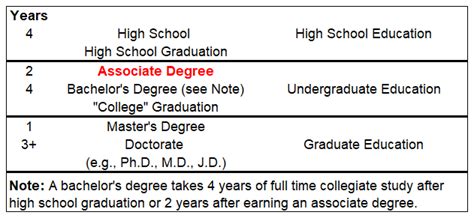The duration of a master's degree program can vary significantly depending on several factors, including the country, institution, field of study, and type of degree. Generally, a master's degree is considered a postgraduate academic degree that typically follows the completion of a bachelor's degree. The primary purpose of a master's program is to provide advanced knowledge and skills in a specific field, enhancing the student's expertise and preparing them for professional practice or further academic pursuits.
Typical Master Degree Duration

In many countries, the standard duration for a master’s degree is between one to two years full-time, with part-time programs often taking longer, typically two to three years. This variation is due to the differing credit requirements and the intensity of the coursework. For instance, in the United States, a master’s degree often requires the completion of 30 to 60 credits, which can be finished in two years if the student attends full-time. In contrast, some European countries, under the Bologna Process, have standardized master’s programs to last two years, equivalent to 120 ECTS (European Credit Transfer and Accumulation System) credits.
Factors Influencing Master Degree Duration
Several factors can influence the duration of a master’s degree program. One significant factor is whether the program is research-based or coursework-based. Research-based master’s degrees, such as an M.Sc. (Master of Science) or M.A. (Master of Arts), often require the completion of an original research thesis and can take longer to complete, sometimes up to three years. On the other hand, coursework-based master’s degrees, like an M.B.A. (Master of Business Administration), focus on advanced coursework and can usually be completed within two years.
| Country/Region | Typical Master's Degree Duration |
|---|---|
| United States | 2 years (full-time), 2-3 years (part-time) |
| Europe (under Bologna Process) | 2 years (full-time), equivalent to 120 ECTS credits |
| Australia | 1-2 years (full-time), 2-4 years (part-time) |
| United Kingdom | 1 year (full-time), 2-3 years (part-time) |

Key Points
- The standard duration for a master's degree is typically between one to two years full-time.
- Part-time master's programs can take longer, often two to three years.
- The duration can vary based on the type of degree (research-based vs. coursework-based), the country, and the institution.
- Prospective students should research the specific program they are interested in, as durations can vary significantly.
- Understanding the credit requirements and the structure of the program (full-time vs. part-time) is essential for planning.
In conclusion, while there is a general guideline for the duration of a master's degree, the actual time it takes to complete such a program can vary widely. Factors such as the nature of the program, the location, and whether the student attends full-time or part-time play significant roles. As such, it's essential for individuals considering pursuing a master's degree to thoroughly research the specifics of their desired program to understand what they can expect in terms of duration and commitment.
What is the average duration of a master’s degree in the United States?
+The average duration of a master’s degree in the United States is approximately two years for full-time students and two to three years for part-time students.
How does the duration of a master’s degree in Europe compare to other regions?
+In Europe, under the Bologna Process, master’s degrees are standardized to last two years, which is comparable to or slightly longer than in some other regions like the United Kingdom but shorter than in countries like Australia for some programs.
What factors can influence the duration of a master’s degree program?
+The duration of a master’s degree program can be influenced by several factors, including whether the program is research-based or coursework-based, the student’s attendance status (full-time or part-time), the country and institution offering the program, and the specific requirements of the degree such as thesis work or internship.



